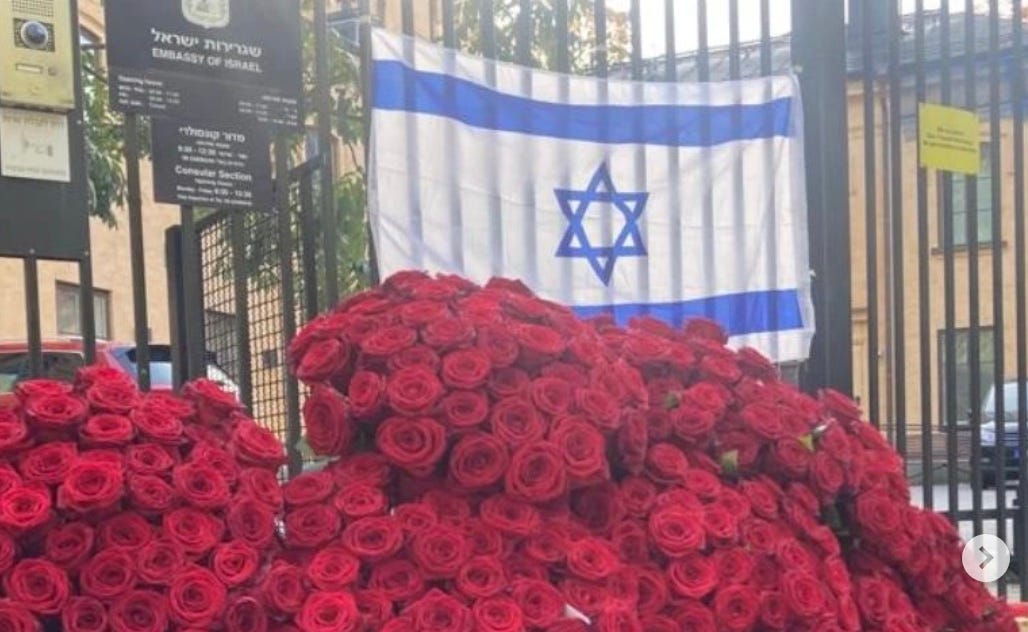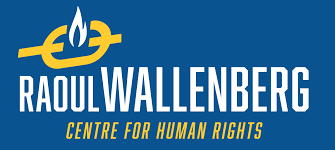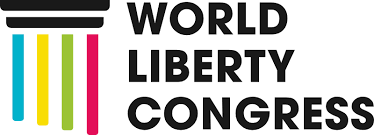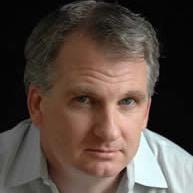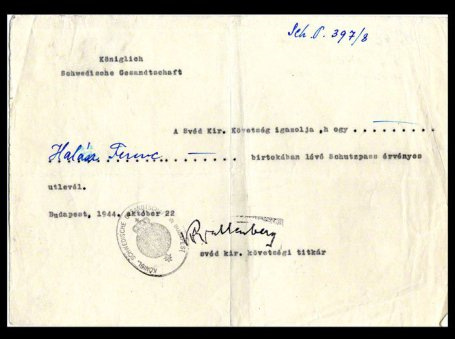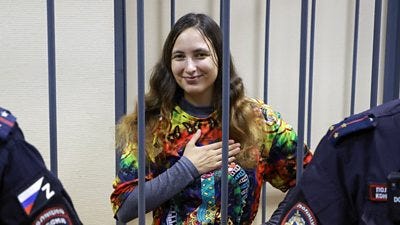RWI-70 6-2023
The elusive search for universal values • Civilian support for Israeli hostages in Gaza • The Raoul Wallenberg Centre for Human Rights (RWCHR) launches new advocacy task force for hostages of Hamas • Mental Health Support Center for terror victims in southern Israel - The Siderot Resilience Center • William Browder, Diane Foley and Siamak Namazi call for more effective policies to counter international hostage taking • The World Liberty Congress holds its inaugural meeting • The RWCHR demands proof of life for Dawit Isaak other Eritrean journalists • Timothy Snyder’s project to help Ukrainian civilians through the winter and a new report on the rebuilding of Ukraine • 2024 Raoul Wallenberg Seminar and International Roundtable in Stockholm • The Swedish MFA appoints new contact person in the Wallenberg case • Two news items from Russia
I have been to the mountain top - I have seen the promised land.
Dr. Martin Luther King, Jr.
The Elusive Search for Universal Values
Dear Friends and Colleagues,
In these extraordinary times, please allow a moment for a personal note. Illness in my family prevented me from sending out a circular earlier.
Our project is focused on historical research. At its best, understanding history should help us make sense of the presence and, if possible, guide us to avoid the mistakes of the past. The brutal attacks on Israeli civilians from October have shaken that hope to the core. They have come as a horrific shock. One cannot help but feel numb, outraged, and also deeply saddened. At times it seems questionable whether we can ever manage put life back on a calmer, more tolerant and humane track.
It is easy to despair about humanity at moments like this. We seem to have learned nothing. And yet, we have to believe in the future, and help shape it, especially for the coming generations. And this means we need to act – for the people affected by the crisis in Israel and Gaza, on both sides of the conflict, as well as those countless others suffering horrendous human rights abuses the world over.
Terrorist groups like Hamas and their supporters aim for a persistent state of chaos, militant confrontation, and war. Perhaps just as troubling as the violent outside threats to democracy and the rules based international order by increasingly powerful autocratic regimes are the growing attacks on democratic structures from within democracies themselves. As we have come to realize, no threat is more serious than taking democracy and the rule of law for granted or to doubt its value. As part of this trend, disinformation and the questioning of verifiable facts are on an alarming rise.
It is clear that without objective, universal truths, there also cannot be any universal values shared by all humanity.
When it comes to human rights, we are stuck in an inherent contradiction, a type of moral relativism. We advocate and believe in universal rights, but we do not attach to them an absolute value. Plus, despite longstanding efforts, the rights we do have are neither adequately codified nor enforceable.
The ability of global institutions like the U.N. to ensure respect for human rights will remain in serious doubt as long as a large number of its member states are among the worst offenders. The newly founded World Liberty Congress recently warned that only 34 liberal democracies remain - a deeply troubling statistic.
In recent weeks I have found my thoughts wandering again and again to advocates of non-violence like Mahatma Gandhi and Martin Luther King, wondering how relevant their message of peaceful coexistence and conflict resolution remain in today’s world.
It is easy to forget the enormous pressure and hatred King personally endured. He was sentenced to hard labor in Georgia, as a result of an absurd parole violation stemming from a misdemeanor charge of driving without a valid license. His house was bombed, while his wife and baby daughter slept. He correctly predicted he would not live to see the age of 40.
Through the years, King was repeatedly jailed, spat upon and otherwise harassed, not only by Southern white supremacists, but the U.S. Justice Department under U.S. Attorney General Robert F. Kennedy. Yet on the eve of King’s assassination, Kennedy found the words to eulogize King in a memorable speech. Drawing on his own brother John F. Kennedy’s assassination, he urged his compatriots to forgo feelings of revenge and to take King‘s central message to heart. It is well worth citing here:
“In this difficult time for the United States, it is perhaps well to ask what kind of a nation we are and what direction we want to move in. […] For those of you who are black and are tempted to be filled with hatred and distrust at the injustice of such an act, against all white people, I would only say that I feel in my own heart the same kind of feeling. I had a member of my family killed … But we have to make an effort …
My favorite poet was Aeschylus. He wrote:
Even in our sleep, pain which cannot forget falls drop by drop upon the heart until, in our own despair, against our will, comes wisdom through the awful grace of God.
We will have difficult times; we’ve had difficult in the past; we will have difficult times in the future. It is not the end of violence; it is not the end of lawlessness; it is not the end of disorder. But the vast majority of white people and vast majority of black people in this country want to live together, want to improve the quality of our life and want justice for all human beings that abide in our land.
Let us dedicate ourselves to what the Greeks wrote so many years ago; to tame the savageness of man and make gentle the life of this world.
Let us dedicate ourselves to that and say a prayer for our country and for our people.”1
The operative word here seems to me “wisdom” – it is perhaps idealistic or even illusory to appeal for moderation and restraint, kindness and compassion, at this moment in time, but in the end, it seems the only way forward, even in the face of such cataclysmic events.
As we know by now, there are no simple solutions for complex problems. We reap what we sow. Now more than ever we have to hope that our better angels will prevail. We have to be willing to confront reality, including our own mistakes and invest the time and good will to arrive at workable solutions. And hopefully, once the weapons fall silent, we can begin to rediscover our shared humanity. Ultimately, change can only come from within.
So, in honor of the victims of October 7 and its brutal aftermath, and in recognition of the dreamers and the visionaries, the resistors and the negotiators, I would like to focus on positive steps– in both words and deeds. Like the numerous efforts to aid the children and families in Israel and Gaza and in various global conflicts to deal with the trauma of war; the efforts to protect innocent civilians and journalists; the evacuation of children and families from conflict zones; the new steps taken to end the scourge of political hostage taking; the inaugural meeting of the World Liberty Congress; historian Timothy Snyder’s project to help Ukrainian civilians through the winter and Russian artist Sasha Skochilenko’s remarkable poise and determination in court.
2024 marks the 80th anniversary of the Holocaust in Hungary - a stark reminder how much history connects us to the present-day events. I urge you to re-read Irwin Cotler’s timeless essay on the universal lessons of the Holocaust and the contemporary relevance of Raoul Wallenberg‘s humanitarian mission and his still not fully resolved fate as a political prisoner and hostage in Stalin‘s Russia. We will have a chance to explore all these issues in depth next year (provisional date May 2024), at a formal seminar and an International Roundtable in Stockholm.
I include several articles and texts at the end of this circular that for one reason or another affected me or caught my attention in recent weeks. I stress that I do not endorse any of the content - I simply wish to share a cross section of analysis and views of the very trying and traumatic events we have witnessed (and still witness), in the hope that it provides impetus for further reflection and discussion.
If you know of any initiatives or are involved in certain aid projects and want to get the word out, please send me the information and I will be sure to share it in our ever-growing network.
We will return to a more regular research-oriented circular in the coming weeks.
I wish all of us peace - and continued courage, strength and hope.
Susanne
sberger37@hotmail.com
Civilian support for Israeli hostages in Gaza

Just this morning word comes that there are plans for temporary fire pause and release of an initial group of hostages over the next five days.
There are numerous civilian efforts to aid the more than 230 Israeli hostages held in Gaza and their families. A WhatsApp group provides updates and real-time information. If you wish to join, you can click the link below. There are also groups functioning in French and Spanish. Their main focus is to share information in social media, to raise international awareness and pressure on Hamas to release the captives that include babies, children, and elderly Holocaust survivors.
For further information about these and other groups please contact Dr. Nurit Carmel carmelnurit@yahoo.com
Stand with Israel - German group:
https://chat.whatsapp.com/LvhVoa6NT24HoabEIQMJUG
Stand with Israel - French group:
https://chat.whatsapp.com/Buua49Sx0WjApEhcnXAQe4
Stand with Israel - Spanish group:
https://chat.whatsapp.com/F4Lfgzq1yjRInmZdthyzQS
The Raoul Wallenberg Centre for Human Rights launches New Advocacy Task Force for Hostages of Hamas
From the RWCHR press release -
”Immediately following the attack on October 7, we mobilized and began pursuing diplomatic, judicial, and legal advocacy strategies on an international level to secure the release of the hostages and bring every single one of them home to their families.
Our Hostage Advocacy Task Force is dedicated to advancing adherence to international law by all parties and calling on all those involved to prioritize the release of all hostages held by Hamas.
“The loss of any innocent life is a tragedy- Israeli or Palestinian. Hamas not only takes Israelis hostage, but also holds Palestinians hostage. Hamas is not only the enemy of Jews, but the enemy of Palestinians, of peace, of human rights, and an enemy of our common humanity.” - Irwin Cotler
Our position is simple: The safe return of these hostages is a stand alone obligation. This is a humanitarian imperative of the first order. It is a moral imperative, anchored in the principle of humanity that underpins international human rights and humanitarian law. It is a legal imperative, as the abduction and forced disappearances of the hostages is an ongoing crime against humanity. And it is an international imperative, as states have the responsibility to protect and bring home their citizens.
In our efforts, we are coordinating closely with other hostage support organizations, including the Hostage and Missing Families Forum and The National Council of Jewish Women to ensure all efforts are complementary.”
For more information, please go to www.rwchr.org.
HELPING HEALING HEARTS: Mental Health Support Center for Terror Vivtims in Southern Israel - The Siderot Resilience Center
Keren Kayemeth - Jewish National Fund
Five weeks into the war, as the dust begins to settle on the home front, massacre survivors and evacuees are collecting themselves, reflecting, and embarking on the long road to emotional healing.
From the press release:
The events of Black Sabbath have challenged standard PTSD treatment paradigms. "Until now, therapy was based on the message 'now everything is alright'. It's not that simple," says Adi Efrat, director of the Sderot Animal-Assisted Therapy Center and a survivor of the Kibbutz Be'eri massacre. Read interview here
Immediately after the devastating events of Black Sabbath, KKL-JNF embarked on an emergency campaign to fund thousands of hours of one-on-one trauma therapy with qualified therapists at the Sderot Resilience Center. The center has moved its operations to the city's emergency headquarters, where it is treating evacuated residents remotely. Skyrocketing demand, as evacuees finally have the space to take care of their emotional needs, has made this campaign more relevant than ever.
The World Liberty Congress holds its inaugural meeting
“We must be more united than the dictators.”
More than 200 dissidents and human rights defenders from 56 countries under autocratic rule gathered in Vilnius, Lithuania, in early November for the group’s inaugural meeting. The event was opened by Lithuanian Minister of Foreign Affairs Gabrielius Landsbergis.
The World Liberty Congress was founded last year by democracy activists Masih Alinejad from Iran, Garry Kasparov from Russia and Leopoldo López from Venezuela. The group describes itself as a “non-ideological, global, action-oriented alliance of democracy defenders from autocratic countries.” As the new organization states on its website, its main aim is to “unite for free and fair elections, rule of law, human rights and democracy” and “to build, grow, and strengthen a global network of democracy defenders,”
“Our future is unclear and not guaranteed, but we have a chance to fight for a future we want for us and our children”, said keynote speaker Oleksandra Matviichuk who in 2022 on behalf of the Ukrainian human rights organization Center for Civil Liberties was awarded the Nobel Peace Prize.
“It is amazing to see people from all over the world being brought together because we believe in core democratic values, in human rights, in free and fair elections,” said World Liberty Congress co-founder Garry Kasparov according to a press release. “We codified our founding documents to officially create an organization that will play a pivotal role in advancing the cause of freedom worldwide.”
“We all share the dream of being free,” added co-founder Leopoldo López. “We believe that the struggle for freedom, for democracy, and for human rights cannot be isolated in one single country when 70 percent of the global population lives under autocracy.”
William Browder and Siamak Namazi call for more realistic and effective policies to counter international hostage taking.
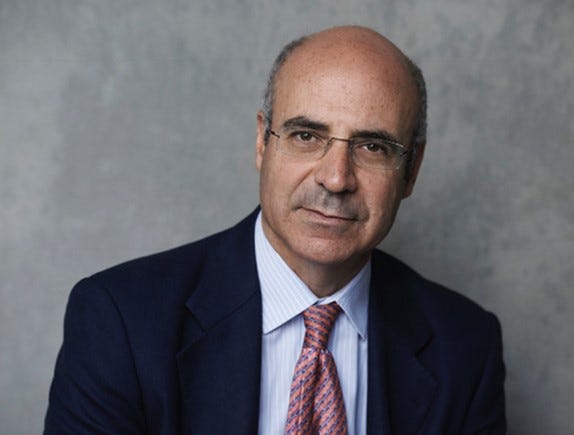
America uses all its might to free hostages from barbarous abductors. So why does Britain still think it's a job for dusty Foreign Office mandarins?
November 4, 2023
William Browder, founder and head of the Global Magnitsky Justice Campaign, and other human rights activists have called on European governments to adopt a more realistic approach. In a commentary released in the British newspaper Daily Mail, Browder urges countries to emulate the steps taken by the U.S. government to establish a formal Office for Hostage Affairs that centralizes crucial resources and expertise.
In 2015, the U.S. introduced sweeping changes to address political hostage taking, with dramatic effects. As a result of the reforms (especially the 2020 Robert Levinson Hostage Recovery and Hostage-Taking Accountability Act, US officials are able to marshal the full power of the US government, across various agencies, to effectively counter the terrorist groups and rogue states that are increasingly engaged in hostage taking. Browder argues that leaving diplomats in charge is not only counterproductive but also inherently problematic.“ For the most part, the chief objective of foreign office officials is “to maintain smooth and functioning diplomatic relations with governments,” Browder writes, “no matter how authoritarian and murderous they are. This leads to “serious conflicts of interest when attempting to free state hostages”, he adds.

After 8 years in an Iranian prison, Siamak Namazi shines light on those left behind
Sheena Goodyear, CBC Radio
September 18, 2023
Former U.S. hostage in Iran Siamak Namazi recently lobbied the United Nations to do more to prevent international hostage taking. Namazi, was released a few months ago after determined efforts from U.S. officials, his family and a dedicated team of lawyers. During a stop-over in Doha immediately after his release, Namazi made a special point of mentioning the pain of leaving behind his fellow prisoners, including his long-time cellmate, the Swedish citizen Dr. Ahmadreza Djalali, imprisoned since 2016. The Declaration Against Arbitrary Detention in State-to-State Relations - sponsored by Canada in 2021 - aims to curb the vile practice of international hostage diplomacy. 73 countries and the European Union have endorsed the Declaration. However, few countries have invoked the provisions for mutual assistance the agreement provides. Sweden, too, has yet to do so in its efforts to free wrongfully imprisoned Swedish citizens abroad, including Swedish-Eritrean journalist Dawit Isaak (Eritrea - 22 years), Gui Minhai (8 years), Ahmadreza Djalali (Iran - 7 and a half years) and Johan Floderus (Iran - 1 and a half years)
Diane Foley and the family of Robert Levinson:: “Make wrongful detention in state-to-state relations both a U.S. and international crime”
In a recent op-ed, Diane Foley, mother of the American journalist James W. Foley who was brutally kidnapped and executed by ISIS forces in Syria in 2014, called for “a comprehensive national and international strategy of deterrence […] which includes educating the most at-risk individuals (e.g., freelance journalists, aid workers, missionaries) from becoming the next set of pawns on the world stage.”
In a separate statement, the family of Robert Levinson – a former U.S. Drug Enforcement Agency and FBI agent - who was taken hostage in Iran in 2007 and who died in Iranian custody, concurred. In particular, the family urged US officials to build on the success of the Levinson Act. “We must systematically put pressure on these countries [like Iran] through sanctions, seizures, private litigation and by making wrongful detention in state-to-state relations both a U.S. and international crime.”
The RWCHR and a coalition of international human rights organizations demand a proof of life for the longest imprisoned journalists in the world - Eritrean journalists Dawit Isaak, Dawit Habtemichael, Seyoum Tsehaye, and Amanuel Asrat
October 27th marked Swedish-Eritrean journalist Dawit Isaak‘s 59th birthday. He and his colleagues Dawit Habtemichael, Seyoum Tsehaye and Amanuel Asrat have been imprisoned in Eritrea since 2001, without charge or trial and with no contact to the outside world.
Supported by the family members of the imprisoned journalists and a global coalition of advocates, the RWCHR sent letters to the Swedish Foreign Minister and Eritrean President Isaias Afwerki demanding that the Eritrean regime prove that Dawit Isaak and his colleagues are still alive. So far, the Eritrean government has failed to respond to the request. In the Swedish response from October 24, 2023, the former Ambassador to Eritrea, Svante Liljegren stressed that the Swedish government continues to request consular access for Dawit Isaak “at every opportunity …, at the highest political level.”
For German speakers, see also the excellent article about Dawit Isaak in the publication Gerbergasse 18 (Heft 108), by Michael Weise, co-founder of Gefangenes Wort. To obtain a copy, please contact me at sberger37@hotmail.com
Timothy Snyder’s campaign to help Ukrainians through the winter and a new report on the rebuilding of Ukraine
The historian Timothy Snyder is raising funds for a project designed to protect Ukraine from Russian attacks on its infrastructure. You find a description of the project here:
“Russia has targeted Ukrainian civilians and civilian infrastructure. This means the water supplies and energy supplies that people need to stay alive, especially throughout the winter.
Russia has taken to attacking other cities and provincial towns throughout Ukraine, with the desire not just to kill some but to deprive all of water, power, and heat. My new Safe Skies fundraiser aims to spread the drone-detection system throughout the entire country. Millions of people would be shielded. Thousands of lives can be saved.”
For Swedish speakers (there should also be an English version available shortly), check out the brand-new report by Swedish economist and author Anders Åslund on the rebuilding of Ukraine.
Save the date - Spring 2024
The 80th anniversary of the Holocaust in Hungary. Raoul Wallenberg Seminar and International Roundtable in Stockholm
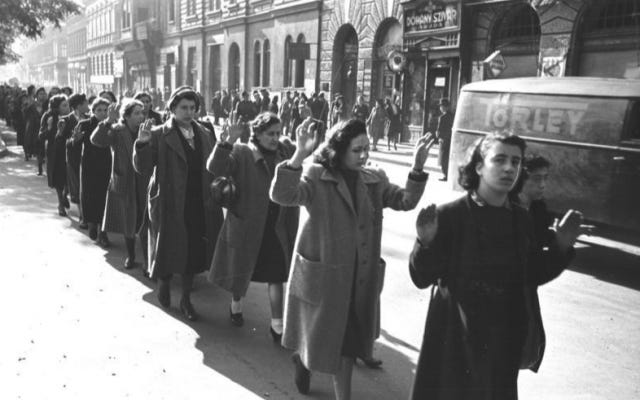
Next year marks the 80th anniversary of the Holocaust in Hungary and Wallenberg’s humanitarian mission. The recent events in Gaza bring into even sharper focus the importance of Raoul Wallenberg’s and Sweden’s humanitarian rescue efforts, as well as the implications of his still not fully resolved fate as a political prisoner and hostage in Stalin’s Russia.
Preparations are under way for two events - one a public seminar, with a popular -historical focus; the other a research-based Raoul Wallenberg International Roundtable.
The one-day seminar will be divided into three basic units:
Block 1. The Holocaust in Hungary in 1944 in historical perspective.
Block 2. 80 years later - The memory of the Holocaust in Hungary and its contemporary implications
Block 3. Raoul Wallenberg and the Swedish role in Hungary during the Holocaust and its aftermath
The seminar will explore the unique circumstances and conditions of the Holocaust in Hungary; how contemporary Hungary views Antisemitism and the Holocaust, and how this attitude compares with other Central European nations like Romania and Poland; the situation of Jews and other minorities such as the Roma today, and the question to what degree nationalism and fascism have made a comeback in these countries.
We also plan a special focus on Sweden’s role in Hungary in 1944-45. We will highlight other rescuers and resistance fighters who have received little recognition, plus we will examine the question why the Raoul Wallenberg case has been such a sensitive issue for the Swedish government for so long.
The Raoul Wallenberg International Roundtable in the Swedish Riksdag will focus on new research findings, covering all phases of the Wallenberg case, as well as efforts to counter excessive secrecy restrictions in various international archives, especially Russia but also in the U.S., the U.K., Hungary and Sweden.
The preliminary dates are for late May 2024. More details to follow as soon as more information becomes available!
The Swedish MFA appoints new contact person in the Wallenberg case
Last but not least, the Swedish Ministry of Foreign Affairs has appointed a new contact person in the Raoul Wallenberg case - Peder Valind Godeau. Mr. Godeau replaces Kasper Andersson who has taken up his new position at the Swedish Embassy in Ukraine. I have advised Mr. Valind that - despite Ambassador Erik Ullenhag’s repeated assurances - the content regarding Raoul Wallenberg and other Holocaust related issues have still not been restored on the Swedish government website. Such a restoration would be a meaningful gesture, underscoring Sweden’s commitment to oppose Antisemitism in all its forms and to the defense of humanitarian principles, democracy and the rule of law.
Similarly, despite countless reminders, the MFA so far has not provided any information how it intends to proceed regarding online database of official Raoul Wallenberg documents from Russian and also Swedish archives. The database has now been defunct for three years. Mr. Valind indicated that he would provide an update as soon as possible.
The website of the Swedish Holocaust Museum still shows only one general entry for the search term “Raoul Wallenberg” in Swedish, zero in English.
Two news items from Russia
Two pieces of news from Russia that warrant attention (aside from the fact that some members of the Russian leadership appear to consider nuclear war an acceptable and not entirely catastrophic option). First, President Vladimir Putin decided to pardon the killer of Russian journalist Anna Politkovskaya. And the artist Sasha Skochilenko received a seven-year prison sentence for her anti-war protest - she had affixed anti-war messages on items in a grocery store. A shocking punishment, even in today’s Russia, yet Skochilenko appeared unbowed. Her speech to the court is remarkable for its defiance and its clarity.
'Five Tiny Pieces Of Paper': St. Petersburg Artist Sasha Skochilenko's Defiant Final Words In Court
November 16, 2023, Robert Coalson
In an uncompromising speech to the court before Judge Oksana Demyasheva read the verdict, Skochilenko pondered the supposed danger posed by the “five tiny pieces of paper,” which would have been seen by only one or two people if the government’s accusations against her had not become a major international cause célèbre.
“The state prosecutor said repeatedly that these five tiny pieces of paper were exceptionally dangerous to our state and society,” Skochilenko said. “What weak faith our prosecutor has in our national society if he thinks that our state and our common security might collapse because of these tiny papers! What harm did I do? Who suffered because of my act? The prosecutor didn’t say a word about that.”
Read the full article here
For further reading
Ruth Margalit. Letter from Israel: The Long Wait of the Hostages’ Families - The relatives of those held by Hamas “live with a timer that is always on”. The New Yorker
Simon Sebag Montefiore. The Decolonization Narrative Is Dangerous and False
It does not accurately describe either the foundation of Israel or the tragedy of the Palestinians. The New Yorker
Queen Rania: There's a 'glaring double standard' in how the world treats Palestinians, CNN
Queen Rania of Jordan talks to Christiane Amanpour about the world's reaction to the Israel and Hamas war.
“Hamas Opened Up The Gates Of Hell” – Mosab Hassan Yousef’s interview with Piers Morgan
Why this former IDF soldier believes Israel is making "a catastrophic mistake" in Gaza, CNN
Christiane Amanpour speaks with peace activist Benzi Sanders on Israel's ground incursion into Gaza.How Israel-Hamas war will impact mental health of children in Gaza - Goats and Soda Studying how violence affects Israeli and Palestinian children NPR
Susanne Berger and Lorraine Borgolini. Why Raoul Wallenberg Matters - The Ongoing Search for Universal Values Judisk Krönika, January 9, 2007
Ingrid Carlberg: Svårt för demokratier att försvara sig mot lögner - Fredagsintervjun, Kvartal
Source: Paper of Robert F. Kennedy. Senate Papers. Speeches and Press Releases, Box 4 “4/2/68 – 4/10/68.” John. F. Kennedy, Presidential Library





